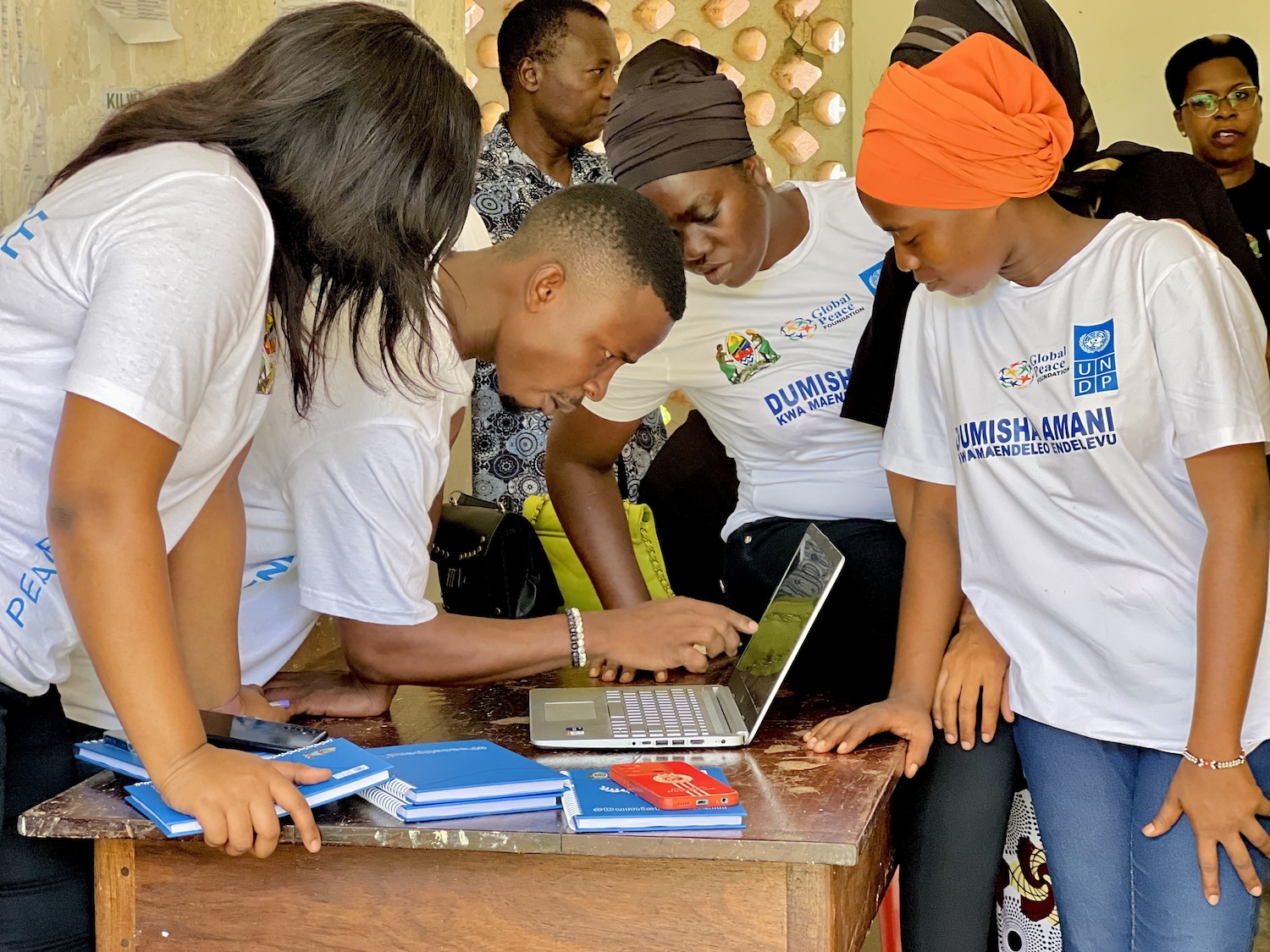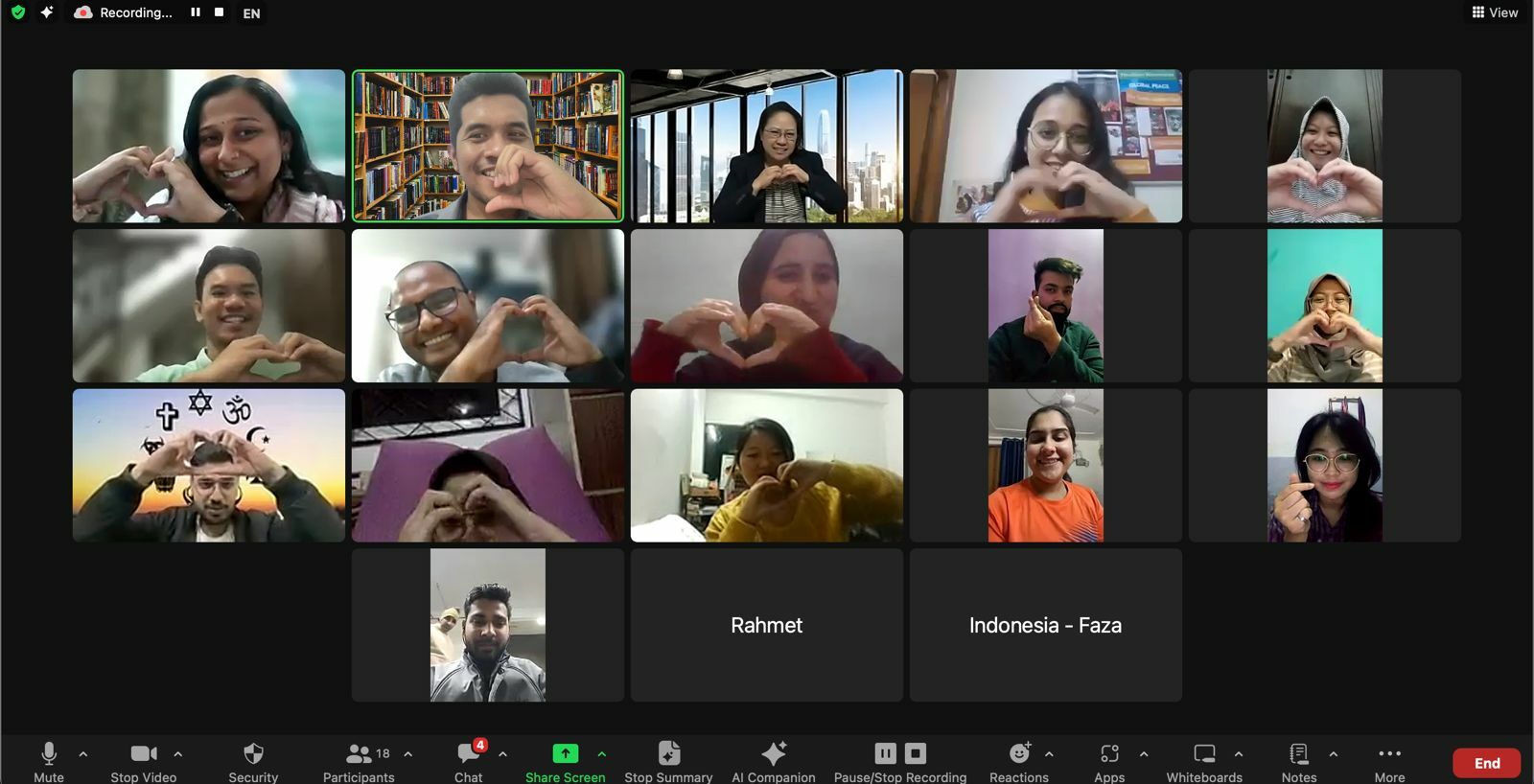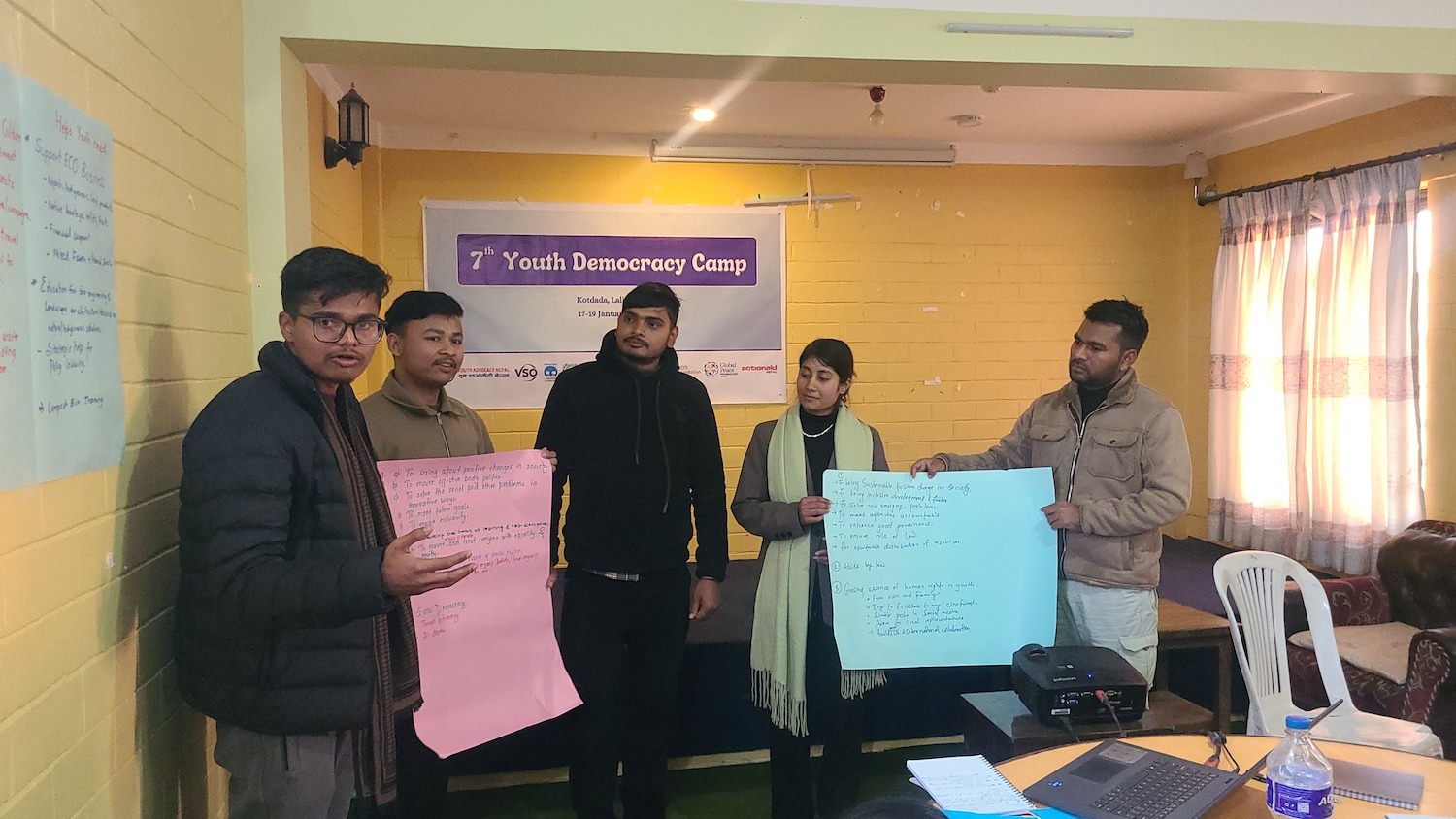“I learned that anybody can be a leader, in fact we all have it in us to be leaders. But leadership remains a choice. One has to decide and work towards becoming a leader. Leadership can be learned and should be learned.” —Milca Kusonika (United Kingdom)
Chaewon Celine Park, a student at Sookmyung Women’s University in South Korea, called her 10-day journey during the 2018 International Young Leaders Assembly (IYLA) a “turning point” in her life. The IYLA is a partnership-driven leadership development program focused on providing a platform for young aspiring leaders to gain the experiences and tools needed to make a greater impact in their communities and society at large.
Their stories as Global Ambassadors from around the world is a call to all young people and following generations to take up the mantle of moral and innovative leadership, bringing both sustainable development and empowering people everywhere to become owners of positive change and peace in their communities and countries.
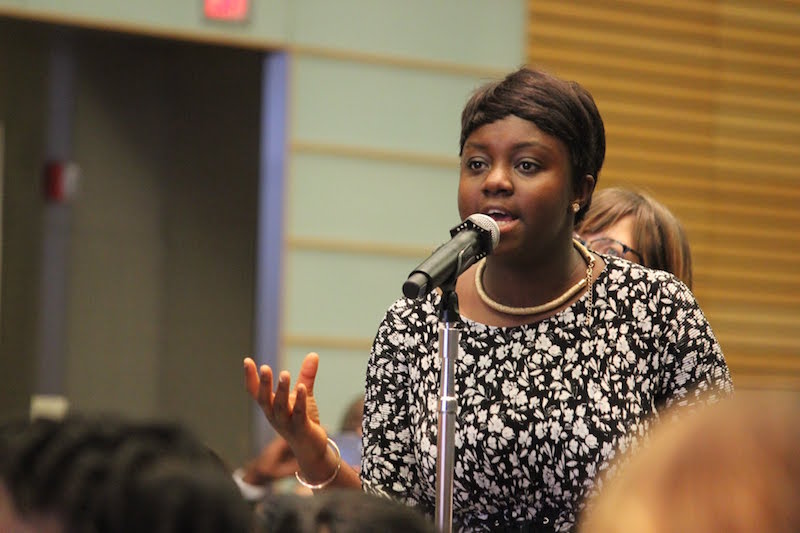
IYLA delegate Milca Kusonika poses a question for panelists at the World Bank
Milca Kusonika, a student from Aston University in the United Kingdom shared, “I learned that anybody can be a leader, in fact we all have it in us to be leaders. But leadership remains a choice. One has to decide and work towards becoming a leader. Leadership can be learned and should be learned.”
Under the theme “Moral and Innovative Leadership for Peace and Development,” young leaders from around the world convened in Washington D.C., Philadelphia, and New York City in an intensive leadership development experience where they interfaced with many of the most-renowned organizations in the world, like the World Bank and the United Nations Headquarters.
There were many lessons on leadership that the delegates could reflect on. Scott Hughes, a Research Analyst at the Global Health Alliance said, “The State Department taught me about the different departments and bureaus within a governmental organization and how regional insights combine to form a global perspective. Leaders have many competing interests to juggle, including the interests of their country and other countries everyday.”
However, most of the learning came from interacting with each other. As Dindo Abueg, Municipal Counselor in Pililla, Rizal, Philippines, noted, “Every event was very significant most especially when there was an interaction among co-participants and sharing thoughts and opinions with each other.”
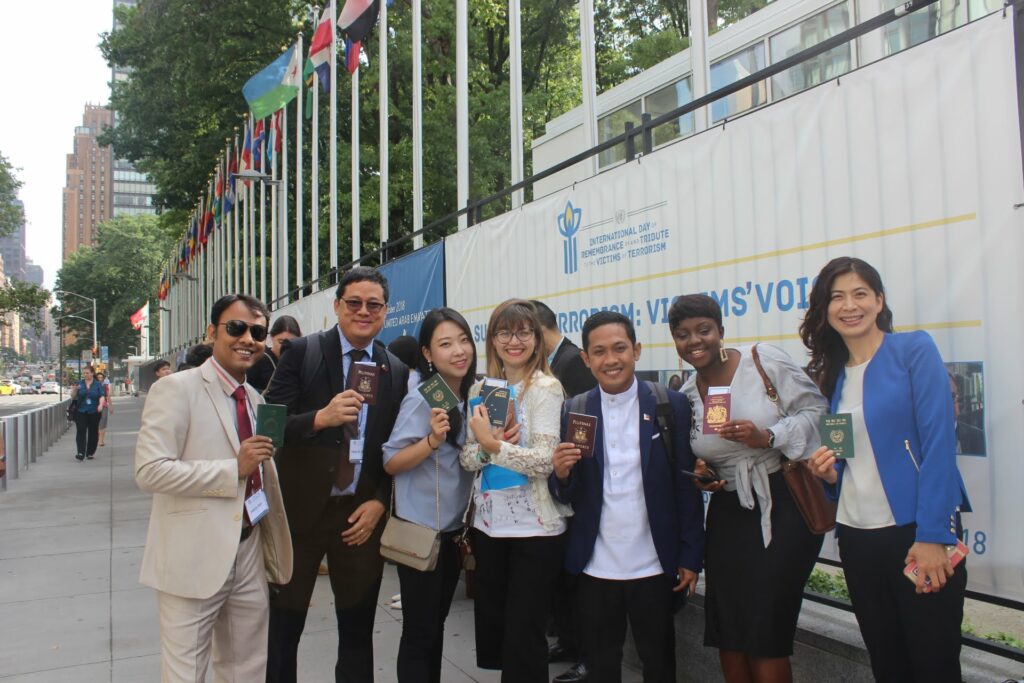
IYLA delegates stand in front of the United Nations HQ
With a diverse group of young people, it can easily be said that “we are one human family.” But differences oftentimes become obstacles to process and change. As Emily Lind from American University reflected, “I’ve sought ways in which we can all work together. We all have different traits that can help us as leaders and work together.”
Matthew Buckwald from Georgetown University recognized, “Each of them have impacted their home communities in grand ways and yet, when we sit at this table, we are discussing the things we have in common and the goals that we feel we can achieve together. It was enlightening to hear the stories from each.” From their shared experience, the young delegates day-by-day strengthened their connection with each other as they continue to expand their network.
Focusing on a current global issue, the delegates learned about the challenges facing the Korean peninsula and in turn, the rest of the world. With the recent inter-Korea summit and USA and North Korea summit taking place, news about the peninsula has been a hot topic. Entering the program, Jiye Stephanie Kwon, a student at Manila State University, shared “I want to learn about the Korea peninsula crisis and its issue on reunification. I want to understand how to come up with different possible approaches on Korea peninsula approaches.”
The IYLA delegates were hosted by the United States Department of State to receive a briefing on current interactions within Korea and between the United States and North Korea. At the Korea Economic Institute, IYLA engaged in a Six-Party Talk simulation in order to understand the difficulties of collaboration and complexities around the issue of Korean peninsula issue. Outside the diplomatic efforts, the delegates also caught a glimpse of the collaborative grassroots work of the One K Global Campaign.
The 10-day experience concluded at the United Nations headquarters, where hundreds of local youth gathered. Jakaria Jalal from Bangladesh was empowered, saying that a “Lifetime experience ends here with brilliant minds around the globe and the sheer amount of responsibilities to carry a way forward.”
Professor Stephane Dias at the Farroupilha Federal Institute of Education, Science and Technology in Brazil shared, “My dream and project has gotten bigger and more tangible, since I am more confidence in its relevance to our global society and to its inner societies, and since I am more equipped to go through the necessary steps it requires to come true.”
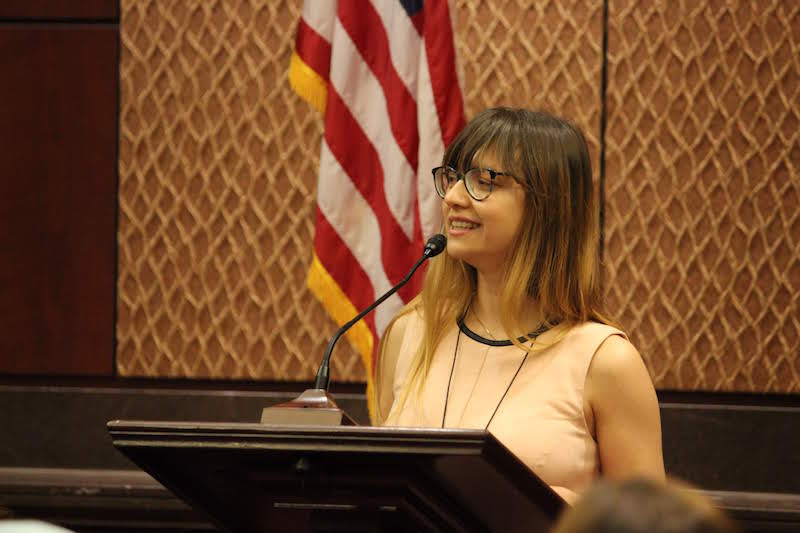
Stephane Dias from Brazil speaks at the U.S. Capitol
Delegate from the Philippines Yussef Paglas talked about how the new networks and motivational stories “accelerated” his dreams. “I am able to take stories of struggles from different people and apply the way they handled it to the career that I am in right now.”
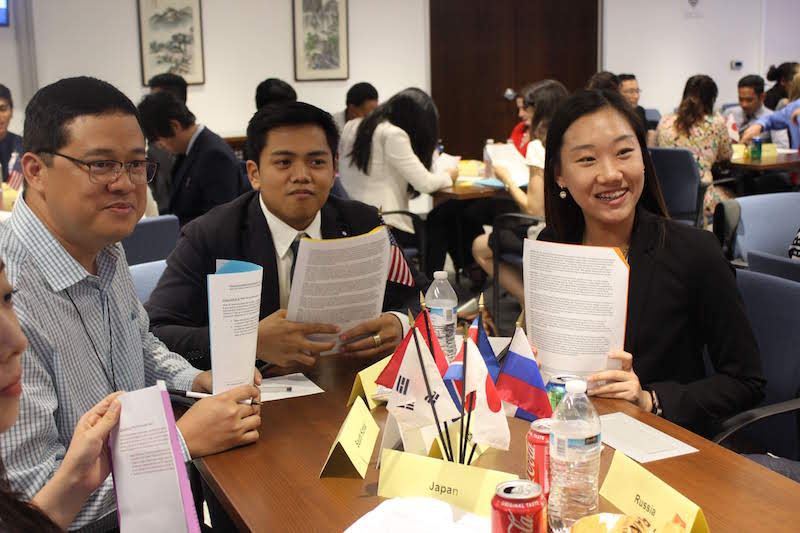
IYLA Filipino delegation at the Korea Economic Institute: (from left) Dindo Abueg, Yussef Paglas, and Jiye Kwon
The 2018 IYLA was co-convened by Global Peace Foundation, Global Young Leaders Academy and the World Assembly of Youth. The 2018 program was made possible because of partners, including Senator John McCain of the US Congress, the American Red Cross, United States Department of State, Korean Economic Institute, World Bank Youth-2-Youth Community, Heritage Foundation, National Constitution Center, Mayor Wilson Goode, EastWest Institute, United Nations Department of Public Information, International Business Machines Corporation (IBM) and the Permanent Missions of Uganda, Ireland, Kenya, Mongolia, Nepal, Paraguay, Philippines, the Republic of Korea and United Kingdom.
Learn more about the International Young Leaders Assembly

